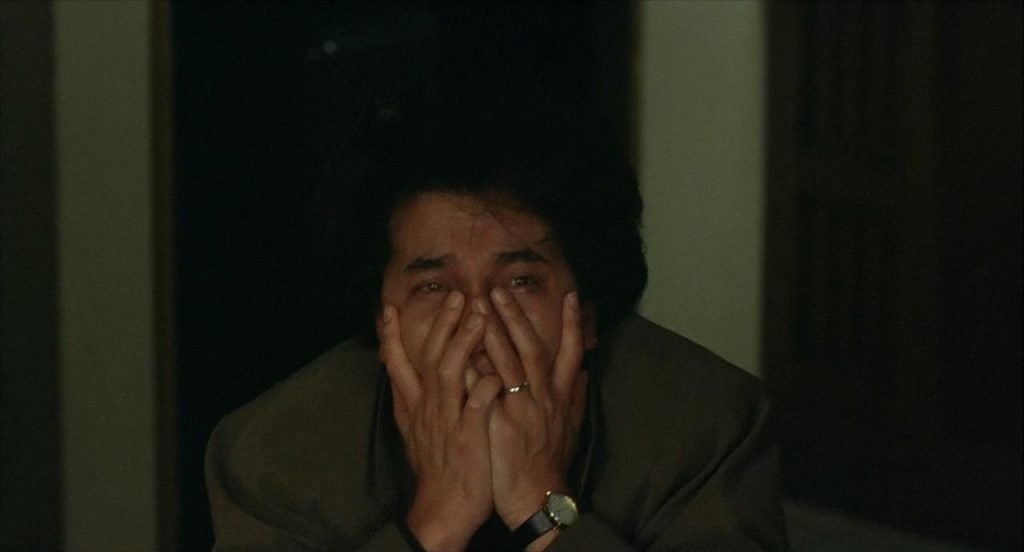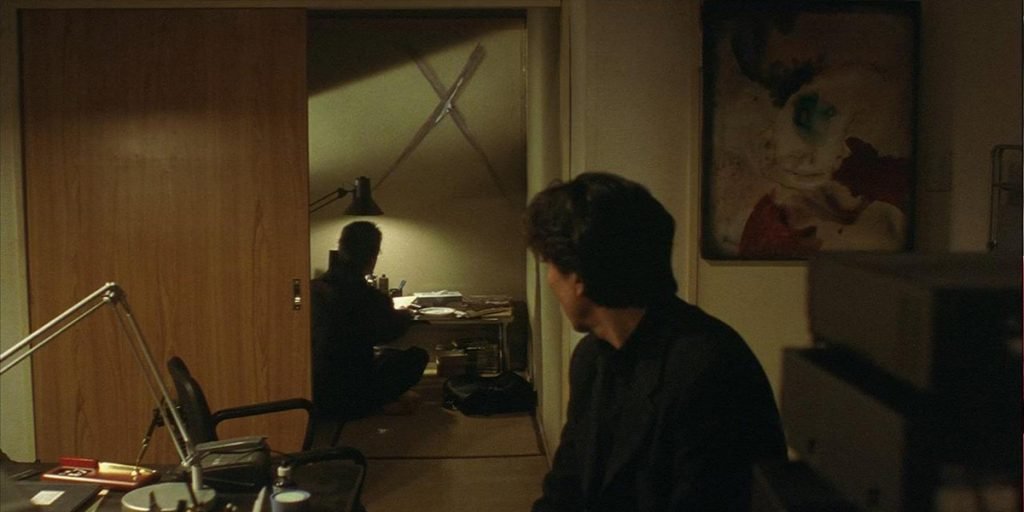Japanese Filmmaker Kiyoshi Kurosawa’s 1997 film Cure goes where no other police procedural dares: the human unconscious.
The dark recess of the human mind is a subject few filmmakers dare to explore, and the few that do often fail to deliver anything more than an astounding simplification of a deeply complex topic. In 1997 however, Japanese filmmaker Kiyoshi Kurosawa, after years of directing commercially and straight to video films with little to no recognition, released the film Cure. While now often praised as the film that kickstarted Japanese Horror films and introduced Kurosawa to western audiences, Cure is far more than its reputation suggests. Beneath the veneer of a “psychological horror” or “hypnotic thriller,” Cure uses a nuanced epidemiological approach to examine the inherent nihilism and susceptibility that lies dormant in us all. Subverting any expectations of satisfaction or comprehension often prioritized by run-of-the-mill police procedural films, Cure stands today as one of the most multi-faceted, technically impressive, and cinematically immersive works to be released in the last 25 years.
Detective Kenichi Takabe (Kōji Yakusho) is investigating a series of troubling homicide cases, cases in which seemingly ordinary individuals kill spouses, partners, or random people with no apparent motive. The only connection amongst these grisly murders besides their mysterious origins is an “X” being carved into the victims, often with a scalpel. Detective Takabe, who lives with his mentally unstable wife, cannot fathom such actions occurring without reason, and, with more and more evidence pointing to a lack of any motive, grows more volatile and desperate.
Working with a psychologist named Sakuma (Tsuyoshi Ujiki), the pair finally apprehend Mamiya (Masato Hagiwara), who Detective Takabe believes is hypnotizing those around him and pushing them to commit these heinous acts of violence. As Sakuma tells Detective Takabe early on, this is only possible if those being hypnotized don’t morally detest murder. Mamiya has no memory of who he is or how he came to be, and instead of answering questions he spends most of his time asking questions like “who are you” and “why,” which further aggravates Detective Takabe. As the film spirals into its elusive conclusion, it becomes increasingly difficult to ascertain what’s real and fabricated, and whether or not Detective Takabe has been hypnotized by Mamiya. The film ends in one of the most simplistically chilling sequences of all time, suggesting Mamiya’s nihilistic disregard for morality and meaning lives on.

Cure asks a series of enigmatic questions, and makes sure to answer none of them. Like Detective Takabe, the audience demands conclusiveness. Yet, Director Kiyoshi Kurosawa denies this at every step, instead electing to present an elaborate and decidedly ambiguous investigation not into who is responsible for the murders, but into why. Mamiya approaches his “victim” first with a series of unanswerable questions, most of which are answered in a matter of fact manner. The true vastness of these questions however, such as “who are you” and “why are you here” bring enough existential anxiety to make the victims vulnerable to Mamiya’s flame, a flame in which he uses from his lighter to begin hypnotizing his subject. The only person that seems immune to this hypnosis is Detective Takabe, in part because he understands the true gravity of the questions Mamiya incessantly asks.
Whether it be the echoing drip of a spilled glass of water, the puddle slowly oozing across the tile floor, a dilapidated street light loudly buzzing, or an orange flame silently swaying in the darkness, Cure masterfully weaponizes its sound design, done by Hiromichi Kôri, and visuals, shot by Tokushô Kikumura, to immerse (or perhaps hypnotize) its audience. With an incredibly modest budget, Kiyoshi Kurosawa manages to create a drained and decrepit city brimming with subdued colors and a distinct industrialized setting. The horrors of nihilistic angst weigh on the characters, the settings, and the audience in unison, leading us to become as frustrated, confused, and disoriented as Detective Takabe.
Cure, remembered fondly today amongst Japanese film fans as the catalyst for the Japanese Horror boom, is a hauntingly intricate and deeply inquisitive thriller that questions the concepts of human morality, reason, and repression unlike any other film. While often compared to films like Seven, to me Cure is truly in a league of its own. Next time you find yourself desperate for answers, or wondering how something could happen, ask yourself this question: who are you?

